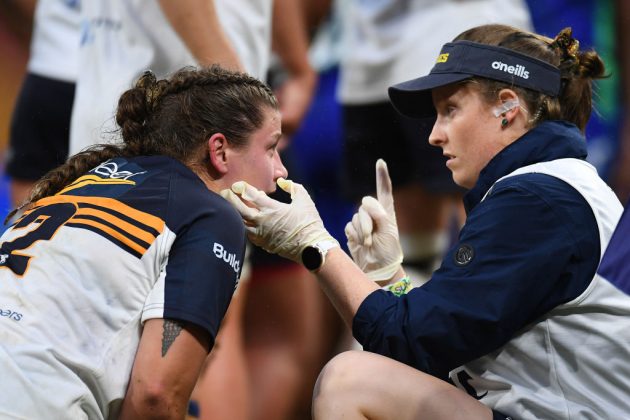World Rugby to extend return-to-play protocols at elite level from 1 July
12-day stand-down for concussed players
Players who suffer a brain injury face a minimum of a 12-day stand-down period before returning to action under new World Rugby protocols.
The current Graduated Return to Play procedures allow players who are concussed to take the field in seven days if they pass the step-by-step tests.
From 1 July, the majority of players at elite level who are diagnosed with concussion will miss their next match under World Rugby’s new individualised approach, which is being introduced on the back of the governing body’s concussion working group’s review of the latest scientific evidence and rugby-specific research.
Any player eligible to return in a week – someone who has failed an HIA but subsequently has normal test results and no history of concussion – can only do so with the approval of an independent concussion consultant.
World Rugby evolves approach to return to play from brain injury in the elite game
?️"World Rugby will never stand still on player welfare and once again we are putting those words into action." World Rugby Chief Executive Alan Gilpin https://t.co/Tqf5pIRGFd @worldrugby
— World Rugby Media (@worldrugbymedia) June 21, 2022
A World Rugby statement said: “The evolved approach will see players, including those with a history of concussion or who are removed from a match with obvious concussion symptoms, sit out from play for a minimum of 12 days, likely missing their next competitive match.
“No player will return earlier than the seventh day after injury, and any player’s return will need to be approved by an independent concussion consultant.”
World Rugby defines a player with a history of concussion as:
- A player who has been diagnosed with concussion in the previous three months
- A player who has had three concussions diagnosed in the previous 12 months
- A player who has been diagnosed with five concussions in their career
- A player with psychological issues which may lead to it being harder to diagnose concussion
- A player who has taken longer than 21 days to recover from a previous concussion
- A player who has demonstrated a reduced threshold in the past to suffering from concussion.
Brain injuries in rugby are the biggest issue in the sport and The Drake Foundation chairman James Drake told us last month that rugby must do more to protect players. This change to the return-to-play protocols follows on-field measures like law changes and the clampdown on head contact.
Dr Eanna Falvey, World Rugby’s chief medical officer, said: “It’s not just a new protocol – it’s going to be a new mindset for coaches and players. Our approach means it is now overwhelmingly likely a player diagnosed with a concussion won’t play in their team’s next match.
“World Rugby firmly believes that scientific evidence supports our protocols, but we are continually monitoring and testing them to ensure that they are fit for the modern game.”
Former All Black Conrad Smith, who is the International Rugby Players’ head of player welfare, added: “The key to this working – and the important part in changing the culture around concussion – is that players report their head injuries and any symptoms.”
Progressive Rugby has lobbied World Rugby to extend the elite return-to-play period since 2021. As regards the announcement, a spokesperson said: “Whilst long overdue and not the perfect solution, this is a positive step for elite player welfare and will prevent most elite players from being exposed to extreme and unnecessary risk.
“It is also a welcome acknowledgement for our members, who have long held grave concerns around this flawed protocol and lobbied tirelessly for it to be extended.
“However, while undoubtedly a victory for player welfare, the journey is not complete and Progressive Rugby will continue working to ensure that the great game of rugby can be enjoyed by future generations.”
Download the digital edition of Rugby World straight to your tablet or subscribe to the print edition to get the magazine delivered to your door.
Follow Rugby World on Facebook, Instagram and Twitter.





